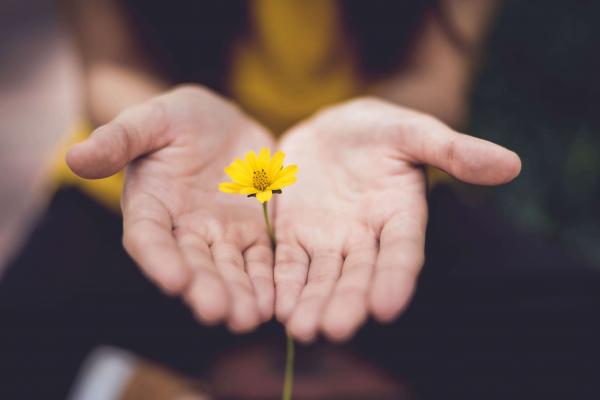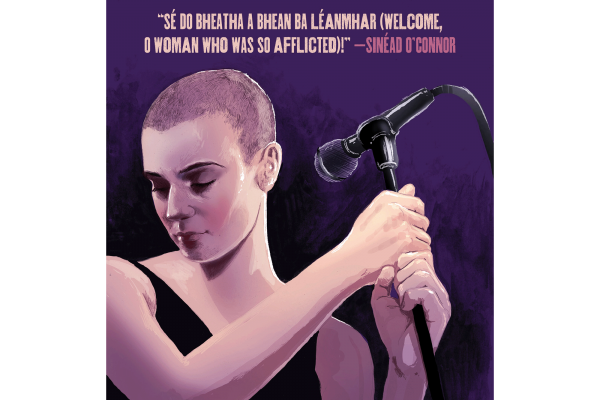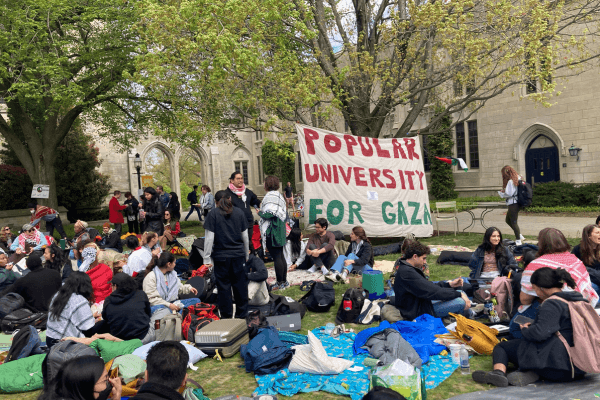A few weeks ago, I spent a weekend on Pueblo land in New Mexico teaching a group of contemplative activists alongside Father Richard Rohr and activist, writer, and teacher Mirabai Starr. We gathered to ask big questions:
How do we love one another better in a divided world?
What inward work is necessary to be an engaged activist?
How do we name and fight against evil without demonizing one another?
It was a weekend dedicated to finding space to engage these difficult questions, and when I returned to Atlanta a few days later, I was filled with hope for what our future might look like, inside and outside of the church, among people of all religions, in the United States and beyond it.
It is no surprise that for both older Christians and younger Christians looking for ways to connect to God that are counter to the imperialistic and colonial Christianity we inherited, we are looking to the contemplative traditions to guide us.
By contemplation, I am basically referring to the work of creating and sustaining an inner life of peace, quiet, listening to the Divine/Mystery/Higher Power/God , and letting the overflow of that love stretch into other realms of life.
Many of us who grew up in the evangelical church were trained to act and do instead of cultivating an inner life. In the Baptist tradition that I knew, my inner life of prayer was solely meant to help me save people from the flames of hell. We were taught to “subdue the earth,” which translated to doing whatever we want despite the consequences. The contemplative movement is meant to help us cultivate an inner life that stems from Divine Love and move us outward to care for every living thing in the world — Mother Earth herself, the creatures around us, and our human kin.
If our inner life teaches us to honor a benevolently created world, the overflow from that inner work will result in a passion for sustaining love in the world and peacefully dismantling systems that seek to oppress and harm the earth and everyone that inhabits her.
It means that our inner work must lead us to decolonize, to break down systems of colonization and hate where we see them. For the world to survive, for true justice to take place among us, decolonization must be a goal. We must fight against systems of settler colonial oppression — systems like toxic patriarchy and capitalist greed that give no care to the land — and we must do it together for the sake of all of us, telling our stories in those spaces, remembering.
While I believe decolonizing is a collective work, it is a deeply personal, spiritual, mental, emotional, and intimate work that we all have to take on for ourselves as well. We know that there are collective answers to decolonizing systems around us, specifically systems that oppress and repress. But what does a shared vision of decolonization mean for all of us, from so many different backgrounds?
Think about what’s happening all over the world right now. People are rising up to fight against dictators, women are rallying to stand against patriarchy and misogyny, Indigenous peoples are working to protect the Amazon rainforest as it is burning, due to the effects of colonization in this world. Our time was yesterday and our time is today and our time will be tomorrow. We stand in these spaces not to claim rightness, but to claim wholeness.
Contemplatives are people who seek the whole, and therefore, live in liminal spaces. So, what then does it look like for us to come up against systems that oppress? We stand against those systems, not because we are looking for a good versus evil duality, but because we recognize that oppressive systems do not see the whole, they themselves are working in dangerous dualities that dehumanize.
In a world that constantly feels heavy, our dedication to cultivating self-care and inner work will lead us to becoming people who practice love outside ourselves.
I have hope.
I have hope when I see people reach across dividing lines to claim solidarity with one another.
I have hope when I see children rising up to speak truth to power in their own, creative ways.
I have hope when I see systems of hate lose their power to people who are collectively committed to love.
May we enter into these spaces holding a shared vision of possibility, a world in which activism is rooted in a universal goodness that cannot be broken.
Got something to say about what you're reading? We value your feedback!







